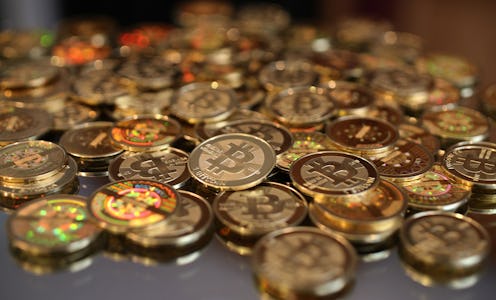News
What the Silk Road Bust Means For Bitcoin
On Wednesday, the FBI cyber-raided the world's premier online drug marketplace known as Silk Road, a Bitcoin-driven "Amazon for drugs" hidden in the deepest recesses of the Internet. Only around 12 million Bitcoins exist in circulation, and Silk Road had transferred almost 10 million of them, meaning that the Bitcoin has until now been inexorably tied to the drug black market. After the bust of the site and arrest of the site's founder, the self-nicknamed "Dread Pirate Roberts" (after the character in The Princess Bride, duh,) the value of the Bitcoin took a steep fall — implying that its ties with Silk Road would spell out the burgeoning currency's fate.
It doesn't help that Bitcoin's other association is with the Winklevoss twins, two ex-Olympic rowers and businessmen better known for being immortalized as assholes in The Social Network. The twins had been lounging on a beach in Ibiza when they were approached by a New York investor — yes, this really happened — who introduced them to Bitcoin, and paved their way to becoming the currency's biggest investors.
So, what exactly are Bitcoins, again? In short, Bitcoin is a currency that's been described as "the Internet applied to money." It's not controlled by the central banks, meaning that it's only a currency amongst those who believe in its value. (Sort of like fairies.) For Silk Road, Bitcoin appealed because it was very nearly impossible to track down those who were trading it online — meaning that if you bought drugs on Silk Road, your identity would remain completely anonymous. It operated under a series of open-sourced numbers, but it was almost impossible to link said numbers up to real, living people.
The value of the Bitcoin took a sharp downturn after the arrest of Silk Road's president in, um, a San Francisco public library. (Seriously: we give it a year before this whole thing becomes a Paramount movie.) Bitcoin's exchange rate plunged from $130 to $85, but has been steadily clawing its way back to recovery ever since. Nevertheless, the drop illustrates the main problem with Bitcoin: it's a highly fluctuating currency and therefore is more akin to shares than actual currency. You want your currency to remain stable and your shares to jump up and down, but Bitcoin is such a skittish, oscillating form of money that it's difficult to see it being a rival to, say, the Euro or Yen.
That said, Bitcoin's detractors are probably incorrect to assume that because Silk Road is dead, Bitcoin will die with it. Though it'll be clear fairly quickly whether Bitcoin can survive without the prop of its key black-market trader, the pseudo-currency has a few things going for it. First off, Bitcoin existed before Silk Road, and its reputation has been seriously harmed by its close association with the marketplace. Disassociating from the black market could be a very good thing for Bitcoin, which is a perfectly legal alternative to bank-controlled currencies, and could flourish if given the right forum to do so.
Secondly, the Internet is an ever-growing beast, and banks are looking for ways to minimize the hassle of money transactions, particularly micro-transactions — think the 99-cent songs on iTunes. If Bitcoin could retain stability in the market, it would be as good a bet as any to do just that. If Bitcoin could redefine itself as an easy online form of money, rather than key to the success of the online black market, then it could gain popularity in the mainstream Internet market. Which is to say, pretty much everything on the Internet.
Also, using it would mean that no-one could know about your Rick Astley purchase on iTunes. (Just a thought.)
